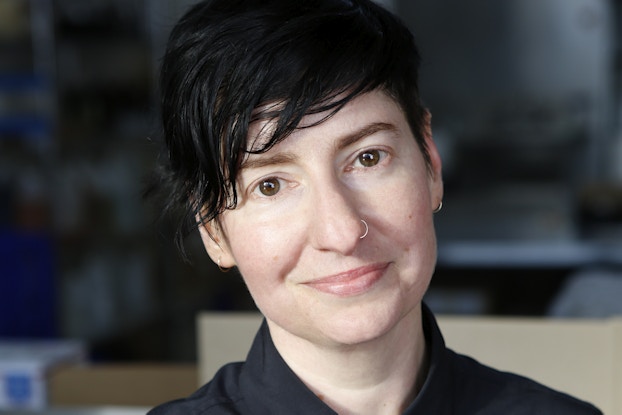
To survive the rocky economic climate of the past few years, Soapwalla, which offers organic skin care products, retrenched. “We decided to shrink our footprint during this time to keep costs lean and not overextend ourselves,” said Rachel Winard, CEO and Founder of the Brooklyn, New York-based company.
Winard started formulating skin care in the early 2000s as a way to soothe her extremely sensitized skin, a result of systemic lupus erythematosus, (SLE or lupus for short). Over the next seven years, she perfected the line, launching Soapwalla in December 2009. Soapwalla’s serums, cleansing bars, deodorants and other products are made with safe, organic, and sustainably grown food-grade plant materials, such as cardamon, ginger, and arnica.
As her company grew, Soapwalla’s products could be found in retailers in both North America and Europe. More than 60% of her business had been international, and many of the company’s business partners were other women-owned and/or queer-owned businesses.
As the pandemic ground on, however, some smaller retailers who carried her products faced tremendous financial pressure. In addition, products headed to international retailers could be held in quarantine for months, Winard said. “The communication lines (with customs) weren’t clear, and it was incredibly stressful. We didn’t know if products would make it to our retailers,” she said.
Winard made the difficult decision to cut back on the number of stores she was supplying in Europe. “No one pushed back, because they were feeling the pressures as well,” she said. Indeed, a number of customers were closing their doors.
Soapwalla continues to ship individual orders outside North America, Winard said. Challenges around customs and shipping costs persist, but the company works with clients on a case-by-case basis to see what will be best for them, she added.
Because Soapwalla is a small, independent business with no lenders or investors, Winard was able to move quickly and decisively. “For so long, the one definition of a successful business has been growth. I don’t think that’s true," she said, adding that it’s "very healthy" to be happy with where your business is.
Streamlining product aspects, like ingredients and packaging
Winard also focused on streamlining ingredients and packaging. For instance, several products that were sold in the same volume had been packaged in different glass containers. “Those are now all the same,” Winard said. This change enables her to order jars and lids in larger, more cost-efficient quantities.
As some ingredients became difficult to source, Winard made slight tweaks to a few product formulations. For instance, because she couldn’t secure ethically sourced rosewood essential oil, she eliminated it from her products. Whenever a change is implemented, Winard is upfront with clients about it, she said.
These steps have been key to Soapwalla’s ability to navigate the past few years, when just about every expense, including rent, utilities, and materials, jumped, Winard said. “We’re still standing and that’s no small feat,” she said. Without these steps, it’s likely the company would have bled out cash, and been forced to close, she added.
Failing to cut back also would have meant risking money that was going to employees’ salaries and health insurance. With Winard, Soapwalla has three employees. “My number one concern was paying employees,” she said. No employees had to take a pay cut or had their insurance threatened. “I will take small, calculated risks, but I’m not a big gambler,” she added.
Because Soapwalla is a small, independent business with no lenders or investors, Winard was able to move quickly and decisively. “For so long, the one definition of a successful business has been growth. I don’t think that’s true," she said, adding that it’s "very healthy" to be happy with where your business is.
That’s not to say Winard is standing still. She has new plans she’d like to implement. One is micro-releases of limited-edition products. “I’d like to get back to my creative side,” she said.
She’s also looking for ways to pivot even more. One idea: meal deliveries that also include skincare products. She notes that it was impressive how creative many people became during the pandemic. “We had to hustle and figure things out quickly,” she said.
“If you’re a small business and you made it through, congratulations,” she said. “You’ve done a really hard thing.”
CO— aims to bring you inspiration from leading respected experts. However, before making any business decision, you should consult a professional who can advise you based on your individual situation.
CO—is committed to helping you start, run and grow your small business. Learn more about the benefits of small business membership in the U.S. Chamber of Commerce, here.

What can membership do for your business?
Gain tools to stay informed, competitive, and connected by becoming a U.S. Chamber of Commerce member. Membership gives you direct access to expert policy insights, economic updates, and exclusive resources designed to help your business thrive. From behind-the-scenes analysis from D.C. to exclusive discounts and expert support, U.S. Chamber membership helps you navigate change and seize new opportunities.







